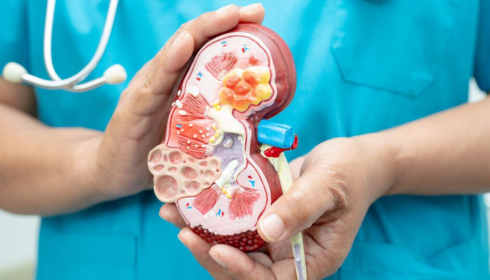
The Role of Nutrition in Managing Stress and Anxiety
In today’s fast-paced world, stress and anxiety have become common companions for many individuals. While various methods exist to manage these feelings, nutrition plays a crucial role that often goes overlooked. By understanding how dietary choices impact our mental health, we can take significant steps toward alleviating stress and anxiety.
Understanding Stress and Anxiety
Before diving into the nutritional aspects, it’s essential to understand what stress and anxiety are. Stress is the body’s response to external pressures, often leading to physical and emotional symptoms. Anxiety, on the other hand, is a more prolonged emotional state characterized by feelings of apprehension or dread.
Both conditions can lead to various health issues, including sleep disturbances, digestive problems, and even chronic illnesses. Therefore, it’s critical to find effective strategies for managing these feelings, and nutrition can be a powerful tool in this regard.
The Connection Between Nutrition and Mental Health
Research has shown that there is a strong connection between what we eat and how we feel. Nutrients affect brain chemistry, which can significantly impact mood and anxiety levels. Here are several ways nutrition can influence stress and anxiety:
1. Blood Sugar Regulation
Eating foods high in refined sugars and carbohydrates can lead to spikes and crashes in blood sugar levels. These fluctuations can contribute to feelings of anxiety and irritability. Instead, focusing on a balanced diet that includes complex carbohydrates, proteins, and healthy fats can help maintain stable blood sugar levels. Foods such as whole grains, legumes, nuts, and seeds provide the necessary nutrients for energy without the drastic fluctuations.
2. Omega-3 Fatty Acids
Omega-3 fatty acids, found in fish like salmon and mackerel, as well as in flaxseeds and walnuts, are known for their anti-inflammatory properties and potential to reduce anxiety. Studies suggest that omega-3s can influence neurotransmitters such as serotonin, which plays a significant role in mood regulation. Including these fatty acids in your diet can help create a more stable emotional state.
3. Micronutrients Matter
Vitamins and minerals are essential for optimal brain function. Deficiencies in certain micronutrients, such as magnesium, zinc, and B vitamins, have been linked to increased anxiety and stress levels. Foods rich in these nutrients, such as leafy greens, nuts, seeds, and whole grains, should be prioritized in your daily meals.
4. The Gut-Brain Connection
Emerging research highlights the gut-brain axis, which shows that our gut health directly influences our mental well-being. A diet rich in probiotics—found in yogurt, kefir, and fermented foods—can promote a healthy gut microbiome, which in turn can improve mood and reduce anxiety. Fiber-rich foods also support gut health by feeding beneficial bacteria, thus enhancing overall well-being.
Additional Strategies for Stress Management
While nutrition plays a vital role, it’s important to combine a healthy diet with other stress management strategies. Regular physical activity, mindfulness practices such as yoga or meditation, and adequate sleep are all essential for maintaining emotional balance.
When to Seek Professional Help
In some cases, managing stress and anxiety might require more than lifestyle changes. If anxiety persists or worsens, consulting with a healthcare professional is essential. They may recommend therapies, medications like Super Alvitra 80mg or Malegra 200mg for erectile dysfunction that can be linked with stress, or other strategies to help you cope better.
Foods to Include in Your Diet
To create a diet that supports mental health, consider incorporating the following foods:
- Leafy Greens: Spinach, kale, and Swiss chard are rich in magnesium and folate, which are beneficial for mood regulation.
- Nuts and Seeds: Almonds, walnuts, chia seeds, and flaxseeds provide healthy fats and protein that can help stabilize blood sugar levels.
- Fatty Fish: Salmon and sardines are excellent sources of omega-3 fatty acids that are linked to reduced anxiety.
- Whole Grains: Brown rice, quinoa, and oats provide complex carbohydrates that help produce serotonin.
- Berries: Rich in antioxidants, blueberries and strawberries can combat oxidative stress, which can contribute to anxiety.
Foods to Avoid
Just as certain foods can promote mental well-being, others can exacerbate stress and anxiety. It’s best to limit:
- Refined Sugars: Foods high in sugar can lead to energy crashes and increased irritability.
- Caffeine: While moderate coffee consumption is generally safe, too much caffeine can heighten anxiety levels.
- Alcohol: Though it may seem to provide temporary relief, alcohol can lead to increased anxiety in the long run.
- Highly Processed Foods: Fast foods and snacks often contain unhealthy fats and additives that can negatively impact mood.
Conclusion
Nutrition is a powerful ally in the fight against stress and anxiety. By making informed dietary choices, you can improve not only your physical health but also your emotional well-being. Focus on consuming a balanced diet rich in whole foods, pay attention to your body’s signals, and combine dietary changes with other stress-relief techniques for the best results. By taking control of your nutrition, you can pave the way for a calmer, more balanced life.



